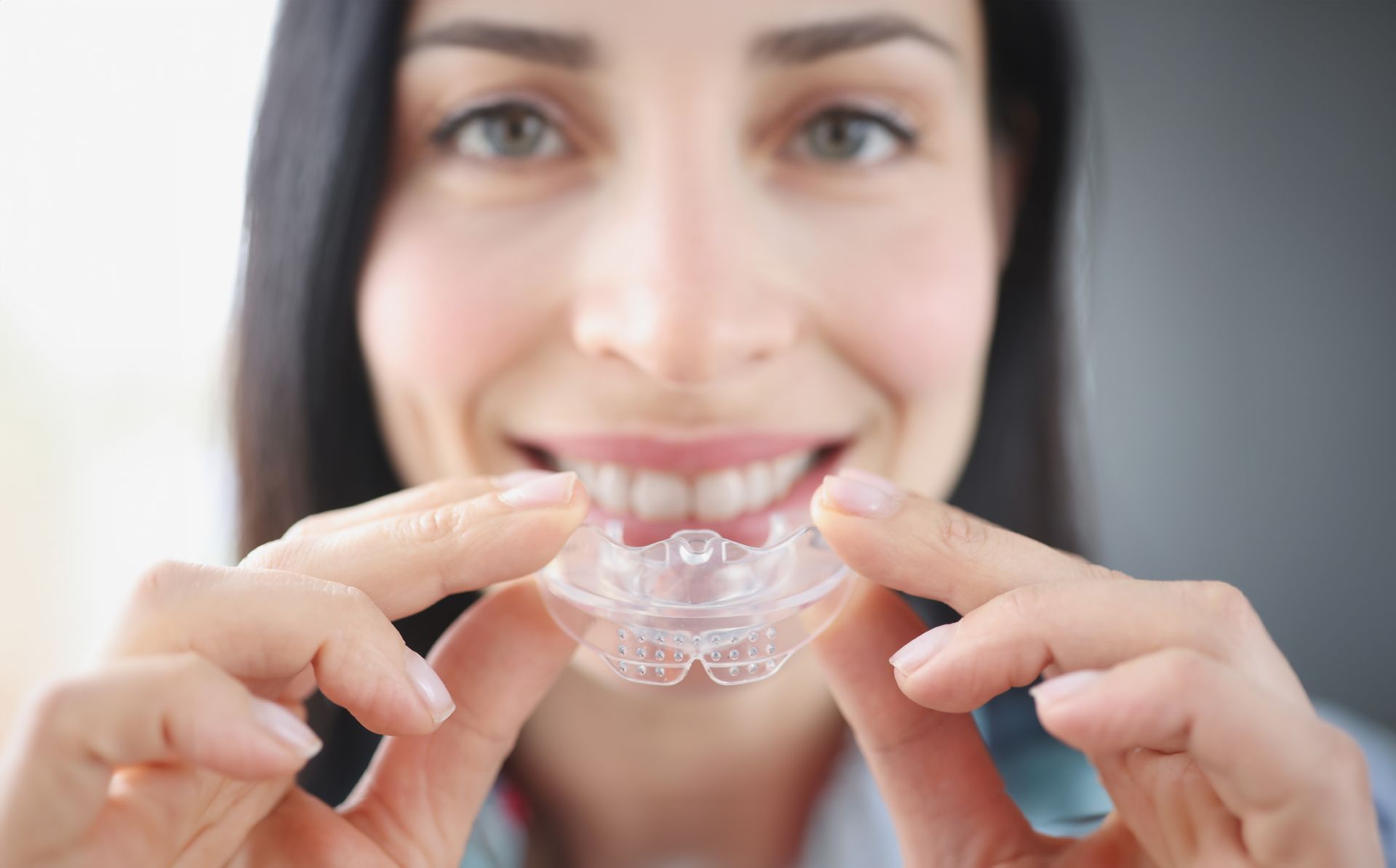Discover the Importance of Nightguards in Preventing Teeth Grinding and Jaw Pain
Understanding Bruxism: Causes, Symptoms, and Custom Nightguards for Protection

Discover the Importance of Nightguards in Preventing Teeth Grinding and Jaw Pain
Bruxism is a condition associated with stress, anxiety, and various dental issues, yet its precise causes remain unclear. Evidence suggests a link between bruxism and sleep disorders like sleep apnea. While research continues, the focus is on minimizing the effects and damage caused by bruxism.
Nightguard Essentials
Nightguards, fashioned from soft plastic or rubber, are a protective barrier placed over the upper or lower teeth to prevent contact. They effectively reduce tooth wear, absorb biting forces, and alleviate jaw pain and headaches associated with clenching.
Tailored Solutions for Bruxism
Mild cases of bruxism may not require intervention, especially if grinding isn't prevalent and symptoms like headaches are absent. For severe cases, a customized nightguard, expertly crafted by a dentist, proves to be the most effective remedy.
Understanding Nightguards and Their Importance
Nightguards, essential for averting damage caused by teeth grinding or clenching during sleep, shield against discomfort and dental harm. Often unnoticed until symptoms arise or noted by a dentist, bruxism affects both children and adults.
Symptoms and Consequences
Signs of bruxism include worn or damaged teeth, along with jaw, neck, or facial pain, headaches, and dental sensitivity. Difficulties in sleeping could also be indicative of this condition.
Custom vs. Over-the-Counter Nightguards
While generic nightguards are available commercially, personalized nightguards are preferable. Custom guards are more durable, comfortable, and tailored precisely to the mouth's contours, ensuring a better fit and greater compliance.
Strategies for Bruxism Prevention
Breaking the habit of clenching during waking hours is possible with conscious effort. Setting reminders and consciously relaxing facial and jaw muscles can help. Identifying and addressing bruxism concerns early can prevent potential discomfort and dental issues.
Seeking Professional Intervention
Regular dental visits aid in identifying signs of clenching, even if there is no discomfort. Dental professionals can recommend interventions and custom solutions, emphasizing the importance of proactive dental care.







